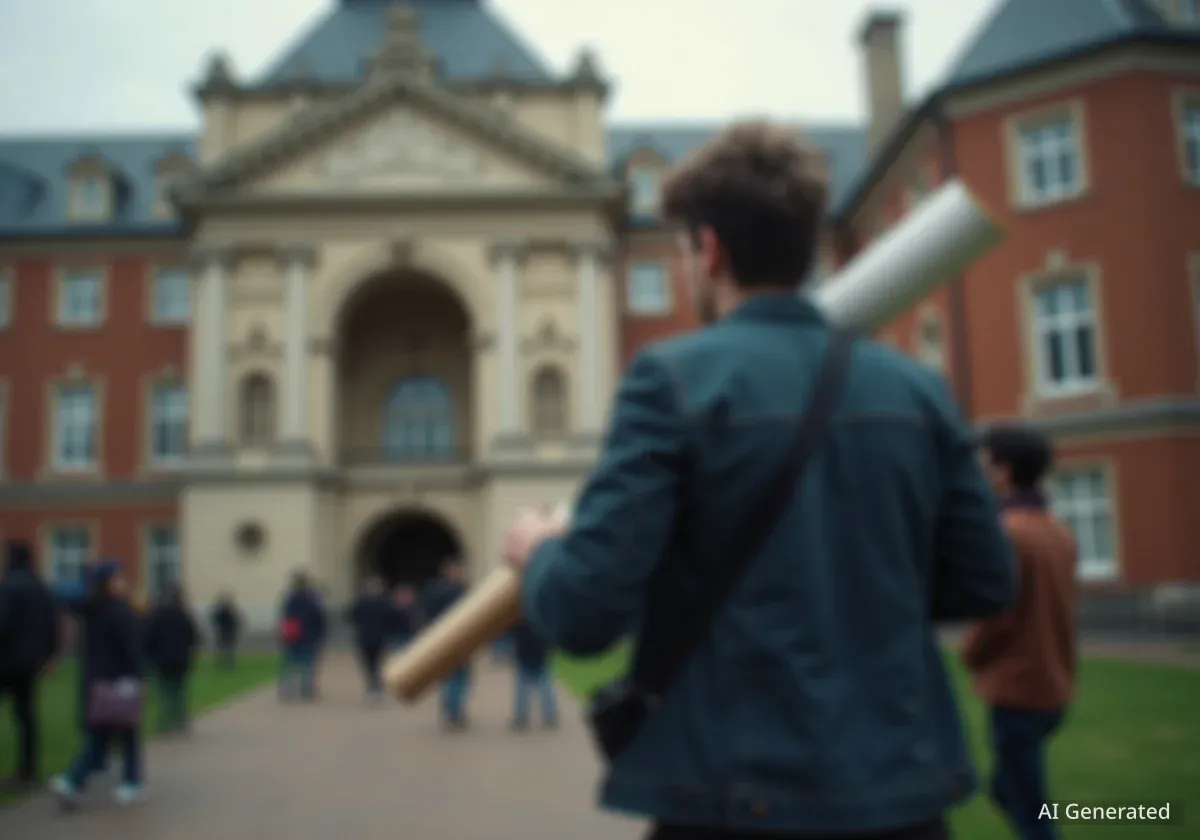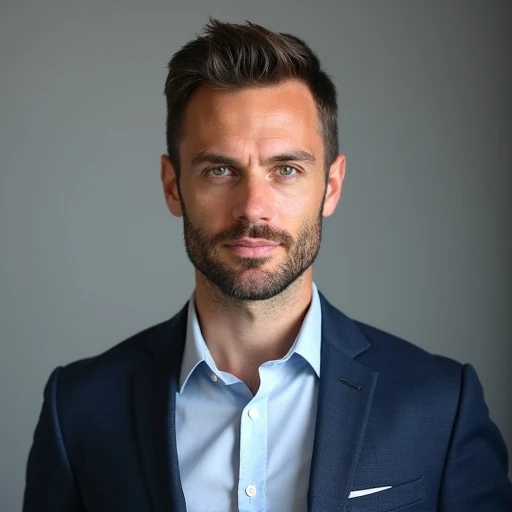A week-long exhibit by the Harvard Undergraduate Palestine Solidarity Committee (PSC) at the Science Center plaza was removed on Thursday, leading to a direct confrontation between former University President Lawrence H. Summers and College administrators. The exhibit, known as the “Wall of Resistance,” featured artwork and text that condemned Israel's actions in Gaza and called for Harvard to divest from Israel.
The removal occurred during an event where Summers spoke, criticizing the installation as “antisemitic” and comparing it to the doctrines of the Ku Klux Klan. His remarks and the subsequent exchange with deans highlighted ongoing tensions on campus regarding free expression and university policy.
Key Takeaways
- Harvard's “Wall of Resistance” exhibit was removed on Thursday.
- Former University President Lawrence H. Summers confronted administrators during the removal.
- Summers called the exhibit “antisemitic” and “the moral equivalent of racism.”
- Administrators cited content-neutral university rules for the removal.
- The PSC stated the wall aimed to highlight Harvard's complicity in the "ongoing genocide and occupation in Palestine."
The “Wall of Resistance” and its Message
The “Wall of Resistance” was an annual exhibit by the Harvard Undergraduate Palestine Solidarity Committee. This year, it consisted of six painted wooden panels. These panels displayed artwork and text specifically condemning Israel's killing of children and aid seekers in Gaza. The exhibit also urged Harvard to divest from Israel.
PSC organizer Eva C. Frazier ’26 explained the purpose of the installation. She stated that the wall was designed to make students reflect on what it means to attend a university that is “actively, materially, and morally complicit in the ongoing genocide and occupation in Palestine.”
The PSC has consistently protested Israel’s occupation of the West Bank and Gaza. Their recent activism has focused on condemning Israel’s military campaign in Gaza following the October 7, 2023, attack by Hamas.
Key Statistics from Gaza
- More than 60,000 Palestinians have been killed in the conflict.
- This includes over 18,000 children.
- These figures are reported by Gaza’s Health Ministry.
An International Court of Justice inquiry into whether Israel has committed genocide in Gaza is expected to take years. However, a United Nations inquiry concluded last month that Israel’s actions in the territory amounted to genocide.
Ms. Frazier emphasized the wall's importance in showing that “occupation and genocide” were continuing. This message came despite a recent ceasefire deal between Israel and Hamas. That deal allowed for prisoner and hostage exchanges and resumed aid flow into Gaza. However, violence has persisted in the weeks following the agreement.
Confrontation During Removal
Former University President Lawrence H. Summers arrived at the Science Center plaza as the exhibit was being taken down. He had previously expressed his upset at the installation to Harvard Chabad Rabbi Hirschy Zarchi. Summers was also scheduled to co-teach Econ 1420: “American Economic Policy” but did not attend that day.
During his address to over 50 Harvard affiliates, Summers strongly condemned the installation. He called it “antisemitic” and “the moral equivalent of racism.”
“I do not believe that if the doctrines of the Ku Klux Klan were proposed for installation in the Science Center, that that would be permitted and that would be enabled by those who lead us in this community,” Summers stated.
He urged attendees to contact University President Alan J. Garber ’76 and College Dean David Deming to express their disapproval.
Minutes after noon, Dean of Undergraduate Education Amanda Claybaugh and Dean of Students Thomas G. Dunne interrupted Summers. They asked him to move away from the wall for safety reasons during its removal. Ms. Claybaugh clarified that his event could continue, but he needed to step back from the dismantling area.
Summers refused to move, stating, “I am going to finish my remarks.” He continued speaking for several more minutes before concluding his address.
Heated Exchange with Administrators
Immediately after his speech, Summers engaged in a heated exchange with Dean Claybaugh regarding her intervention. Claybaugh defended her actions, citing Harvard's content-neutral policy and her concern for safety.
“I’m just defending the University rules,” she said.
Summers challenged the idea that Harvard had enforced its rules neutrally. He expressed significant frustration with Claybaugh’s responses. “Now I’m really angry,” he told her. “I wasn’t angry before. Now I’m really angry.”
Harvard's Campus Use Rules
Harvard adopted its campus use rules in summer 2024, following a pro-Palestine encampment in Harvard Yard. These rules restrict protest tactics and require advance approval for activities like displays and gatherings.
The rules have faced criticism from some faculty and students. They argue the University has applied them inconsistently. Examples include the removal of a Black Lives Matter sign and the cancellation of a pro-Palestine vigil at Harvard Medical School.
The Office of Common Spaces also governs the use of the Science Center plaza. Its website states that exhibits are approved for a maximum of three days. The permit for PSC’s wall included three full days and two partial days for setup and removal, which appeared to exceed this limit.
In an email to a College official, Dean Claybaugh explained her intervention. She and Dean Dunne were approached by a PSC student who needed help dismantling the wall while a group was gathered. Claybaugh worried about someone being hit by a falling panel if the address continued, prompting her request for the group to move.
Perspectives on Campus Antisemitism
In an interview after his remarks, Summers stated his belief that Harvard had not adequately addressed antisemitism on campus. He felt the University had not made enough of “an effort to distinguish between good and bad, legitimate and illegitimate ideas.”
PSC organizer Olivia G. Pasquerella ’26 responded to Summers’ comments. She emphasized that critiquing a state engaged in actions like those in Gaza is not antisemitic or racist.
“It is not antisemitic or racist to critique a state that is perpetrating a genocide that has killed tens of thousands, if not hundreds of thousands, of Palestinians,” Pasquerella said. “That’s what the wall talks about.”
In previous years, the PSC installed a similar wall during the spring semester as part of an annual “Israel Apartheid Week” protest. However, they were unable to install the wall this spring. The College had placed the group on semester-long probation due to their support of a Harvard Out of Occupied Palestine rally, which Harvard stated violated campus policies.
The incident underscores the deep divisions and ongoing debates surrounding free speech, university policies, and the Israel-Palestine conflict within academic institutions.





